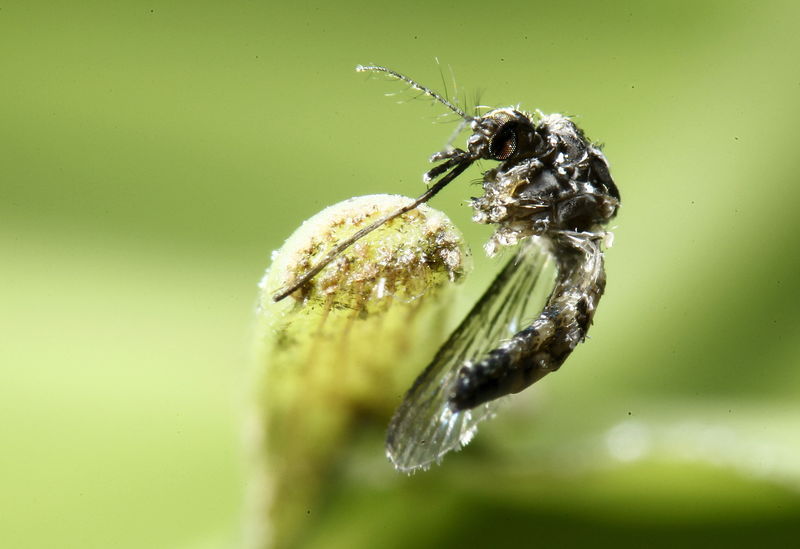By Jane Wardell
SYDNEY, Feb 2 (Reuters) - Two Australians were diagnosed with the Zika virus after returning home from travels in the Caribbean, a state health service said on Tuesday, confirming the first cases of the mosquito-borne virus in the country this year.
Officials also said that mosquitos carrying the virus had been detected at Sydney International Airport, but stressed that it was unlikely the virus would establish local transmission given the lack of large numbers of the Aedes Aegypti mosquitos.
Confirmation of the Australian cases came just a day after the World Health Organization declared the Zika virus to be an international public health emergency due to its link to underdeveloped brains in some babies. There is no vaccine against the mosquito-borne virus.
The New South Wales (NSW) health department said the two Sydney residents were diagnosed with the Zika virus on Friday after returning to Australia from Haiti.
Formal diagnosis can take several weeks and the department did not disclose when the couple were tested. It said the pair had mild cases of the virus and had recovered.
"It is very unlikely that Zika virus will establish local transmission in NSW as the mosquitos that spread the infection are not established here - although they are found in some parts of north Queensland," Vicky Sheppeard, director of communicable diseases at NSW Health, said in a statement.
Earlier on Tuesday, the Department of Agriculture said it was imposing additional cabin spraying of insecticides on flights arriving into Sydney from Southeast Asia.
The department said the step-up in procedures, which includes adding extra mosquito vector monitoring traps, followed the "recent detection" of Aedes Aegypti mosquitos at Sydney airport.
"These measures are undertaken to prevent these mosquitoes establishing breeding populations in Australia, thereby preventing the potential for the local spread of these diseases," the department said in a statement.
Queensland state in the north of the country is on high alert for any entry of the disease from Australia's Asian neighbours.
Australia has reported isolated cases of Zika in recent years, including a 27-year-old man who was believed to have contracted the virus in Bali last year after he was bitten by a monkey.
From 2013 through 2015 there were a handful of other cases involving travellers returning from Indonesia, the Cook Islands and Solomon Islands.
